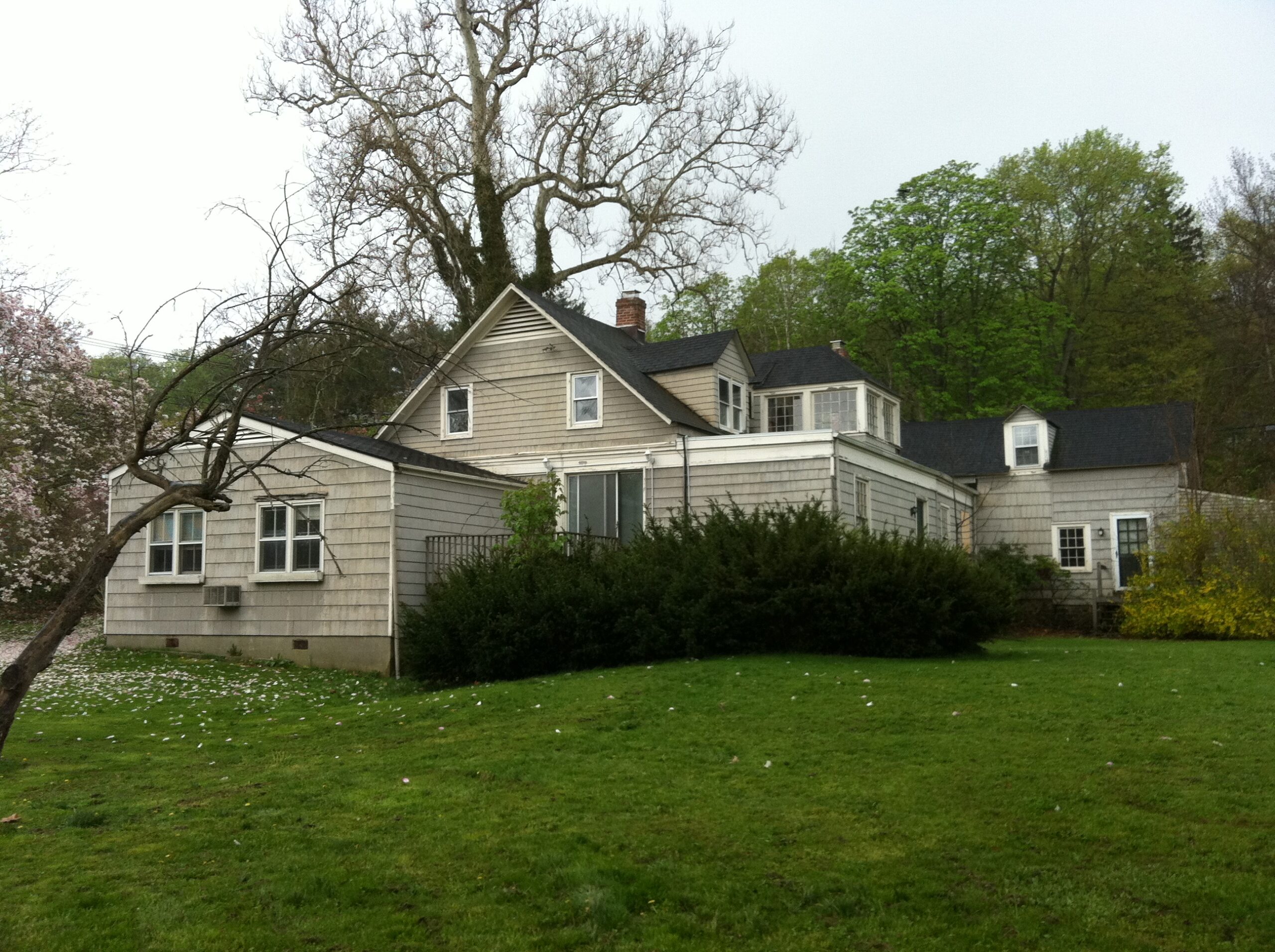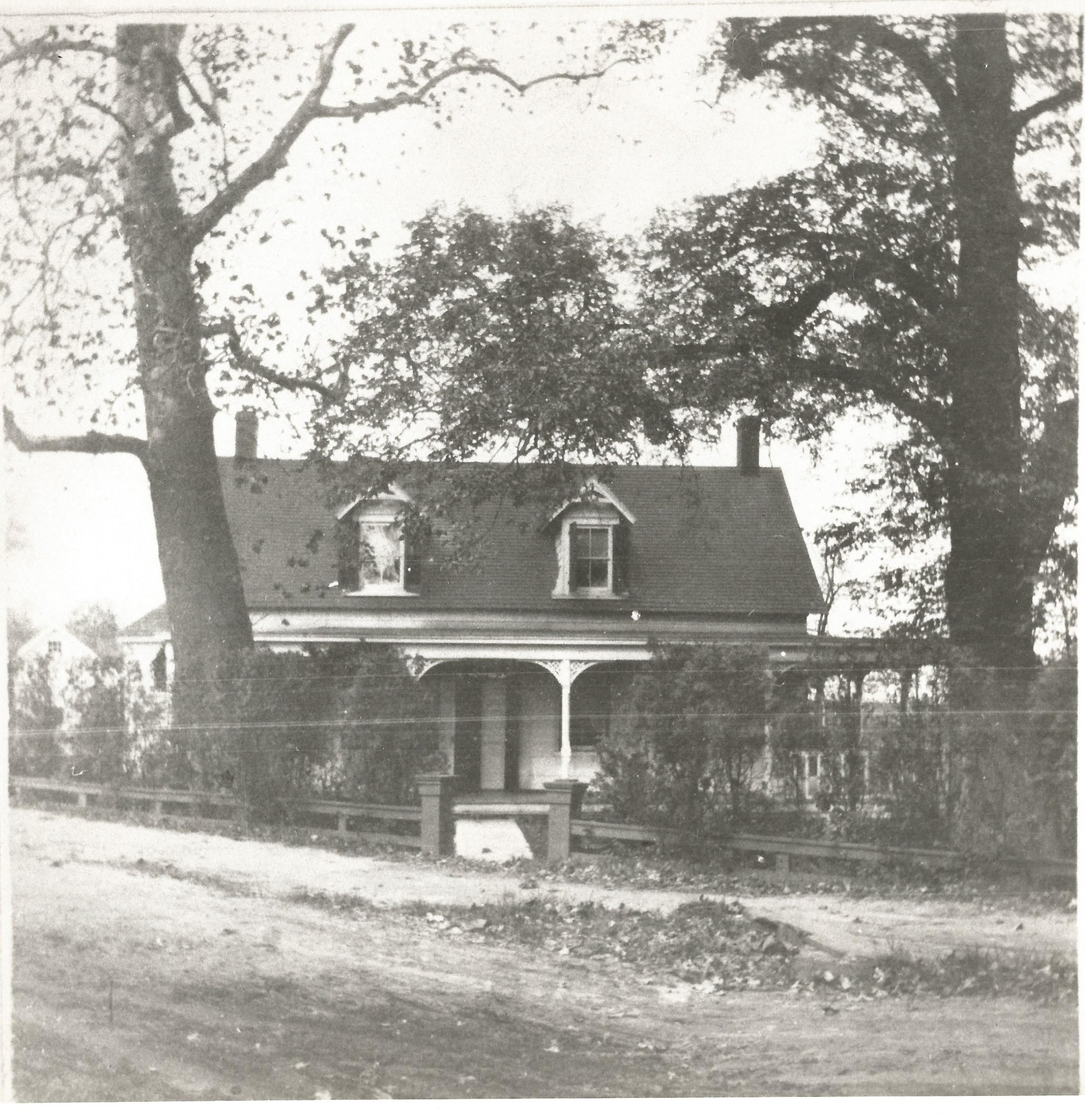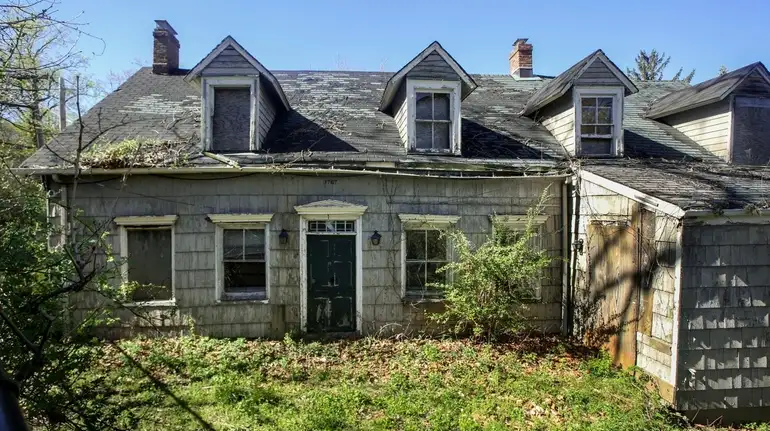Why is Mill Pond House historically significant?
Built before 1720, the Mill Pond House is one of the oldest surviving dwellings in Oyster Bay. This historic house was constructed on land granted to Henry Townsend in 1661 for the construction of Oyster Bay’s inaugural grist mill, which was then passed down to his son, “Mill John” Townsend. Mill John maintained a milling operation until his passing in 1705. The present Mill Pond House is thought to have been constructed by Mill John’s widow, Esther, a pioneering businesswoman known for managing a prosperous sloop-based trading venture, specializing in cider.
Remaining in the Townsend family’s ownership until 1929, the Mill Pond House has witnessed a diverse array of uses, from a private residence to a charming gift shop. Despite alterations and additions over its nearly 300-year history, the historic core house maintains a significant level of architectural integrity.

Why is Mill Pond House endangered?
Designated as an Oyster Bay landmark in 1976, the Mill Pond House has been a focal point of community interest. The Town acquired the property in 2008 with Save Our Environmental Assets funds, and since then, it has unfortunately stood vacant. Two fires in 2014 caused damage to 20th-century additions, but the 18th-century core remains unharmed. Despite strong support from the community, including Oyster Bay Main Street, Oyster Bay Historical Society, and Raynham Hall Museum, the building continues to deteriorate.
The Oyster Bay Town Board, in 2021, approved the hiring of Hauppauge-based Nassau Suffolk Engineering & Architecture PLLC for $248,400 to assess the structure’s condition. The firm estimates a restoration cost of $1.3 million.

How can Mill Pond House be preserved?
-
-
- The land should be subdivided to preserve part of the lot for open space to be consistent with the Save our Environmental Assets town funds, with which the property was acquired.
- The other half, including the historic house, should be sold, with covenants in place, to a new preservation minded owner. The house has significant support from the Oyster Bay Civic Association, the Oyster Bay Main Street Association and others who can work to identify a new potential owner.
-




